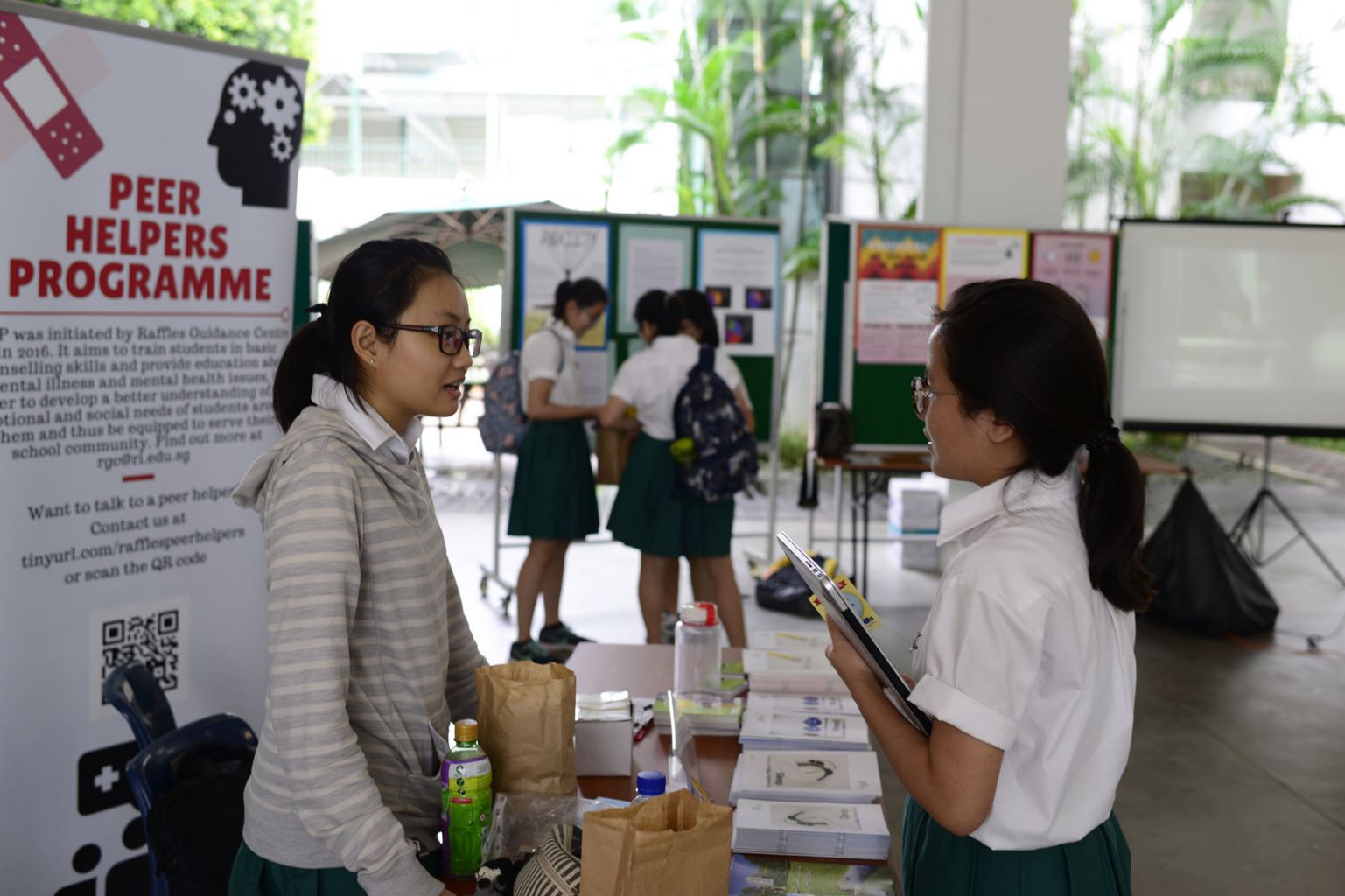More help from early 2018 for people with mental health issues, who aid peers, back into workforce
Sign up now: Get ST's newsletters delivered to your inbox

Year 5 student Jeanne Tan (left), 17, a peer helper, speaking to a student at a booth set up during the Mental Health Awareness Week held at Raffles Institution in August 2016.
PHOTO: RAFFLES INSTITUTION
Felicia Choo
Follow topic:
SINGAPORE - People with mental health issues, who are trained to help others with similar conditions, will be getting more help to ease back into the workforce from the beginning of next year.
They will be able to apply for an apprenticeship scheme, which provides them with a training allowance during the six-month work trial, before moving into formal employment.
The scheme is a collaboration between the National Council of Social Service (NCSS), Workforce Singapore and social service organisations.
Only those who are peer support specialists can apply for the scheme.
These specialists have been certified under a 180-hour programme by the NCSS and Institute of Mental Health (IMH), which teaches them how to help others recovering from mental health issues. They eventually work alongside social workers and counsellors in social service and healthcare institutions.
Besides the apprenticeship scheme, NCSS will also engage consultants to help social service organisations better integrate peer support specialists next year.
The aim is to find roles and develop career pathways for peer support specialists, as well as train staff to create an inclusive environment for those with mental health issues.
NCSS plans to roll out the consultancy service to support 12 programmes run by various social service organisations.
These initiatives are part of a slew of programmes to promote mental well-being and acceptance of those with mental health conditions.
More than 90,000 residents have been reached through community outreach teams - which raise awareness of mental health, identify those at risk of mental illness and conduct preventive care programmes - over the past five years, said Parliamentary Secretary for Health Amrin Amin on Friday (Sept 8).
These preventive care programmes include exercise, healthy eating programmes and brain stimulating activities. Senior citizens are also encouraged to be socially active through hobbies and interest groups.
Mr Amrin said that raising public awareness of mental health conditions and coping skills, as well as providing information on where people can seek care, is necessary in building mental health resilience.
"It strengthens our ability to have healthy relationships, make meaningful choices and have a good quality of life," he added.
He was speaking at the start of the two-day Singapore Mental Health Conference 2017 at the Singapore Expo.
It is jointly organised by the Institute of Mental Health (IMH), the Health Promotion Board, the Agency for Integrated Care (AIC) and the National Council of Social Service. It was initiated by IMH in 2013.
Earlier this year, the Ministry of Health (MOH) announced that the current 18 community outreach teams will be more than doubled to 50 by 2021 by AIC. The agency oversees community care here, which includes nursing homes, senior care centres and day rehabilitation facilities.
MOH is also expanding the Mental Health GP Partnership Programme, where IMH and acute hospitals partner general practitioners and family medicine clinics in their regions to manage patients with mental health conditions such as depression, anxiety and stress-related disorders.
More than 120 GPs have joined the programme and the aim is to increase the number of partners to 180 by 2021, said Mr Amrin.
Correction note: This story was edited to amend the spelling of National Council of Social Service. We are sorry for the error.

